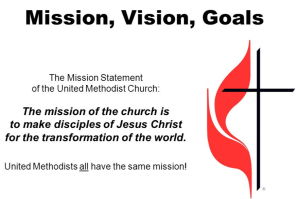Hello, family!
So, this week during worship we heard about Jeremiah’s calling to be a prophet. “Before I formed you in the womb I knew you, and before you were born I consecrated you; I appointed you a prophet to the nations” (Jer. 1:5). Jeremiah lived in difficult times, politically speaking. He ministered from around 627 BCE, during the reign of King Josiah over Judah (considered one of Judah’s last good kings), until after the destruction of Jerusalem by the Babylonian Empire and the exile of so many Judeans in 587-86 BCE (This was the same Babylonian exile I wrote about last week.) Jeremiah’s prophetic career would involve crying out against Judah’s infidelity to its covenant with God and warn of God’s judgment. (Long story short, the people wouldn’t listen very well, and the exile would happen anyway.)
One thing that’s interesting to me about so many call stories in the bible is the objection that’s made by the one who is called. Jeremiah is quick to voice his lack of qualification: But God, I don’t know how to speak. I’m so young. How can I speak for You when I am only a young person? Similarly, when the prophet Isaiah has a vision of God in the heavenly court, he too cries out: “And I said: “Woe is me! For I am lost; for I am a man of unclean lips, and I dwell in the midst of a people of unclean lips; for my eyes have seen the King, the Lord of hosts!” (Is. 6:5). When God calls Jonah, he tries to flee from God’s presence. (Of course, we all know how well that turned out.) When God calls Moses to go to Egypt, Moses has a whole series of objections until God gets frustrated and yells at him. Moses says, “Who am I that I should go to Pharaoh and bring the children of Israel out of Egypt?” And then, “But what shall I say to them?” And then, “But they will not believe me or listen to my voice.” And then, “But I am not eloquent; I am slow of speech and tongue.” Until finally Moses begs, “Lord, please! Send anyone else.” (Ex. Chapters 3-4). Of course, God doesn’t send anyone else. And Moses gets his person and his donkey to Egypt.
In general, it appears that prophets aren’t so happy about being prophets. Not as a first career choice at least. “Me?” the prophet says. “You couldn’t possibly pick me. I’m the worst person you could pick. I’m not qualified at all.” But here’s the thing. God loves working through unexpected people. God loves reversing what we think we know. Reversal is one of the big themes of the bible (in my opinion at least). In his first letter to the Corinthians, Paul writes, “Where is the one who is wise? Where is the scribe? Where is the debater of this age? Has God not made foolish the wisdom of the world?” (1:20) All those qualified people God could have picked, and instead God calls prophets who are decidedly unqualified. Moses, who had a speech impediment and had been raised in Pharaoh’s family… better make him God’s main mouthpiece. Jeremiah, a boy still economically dependent on his parents… give him the authority over nations, to destroy and to plant. Jesus, an uneducated peasant and carpenter, forced to be born among animals… God Godself incarnate. Over and over again, God doesn’t call the qualified, God qualifies the called. I wonder, will we recognize the unexpected prophet? Will we be open to seeing God in the most unlikely of places (even on the days when the most unlikely of places includes the Church itself?)

Grace and peace,
Savvy



